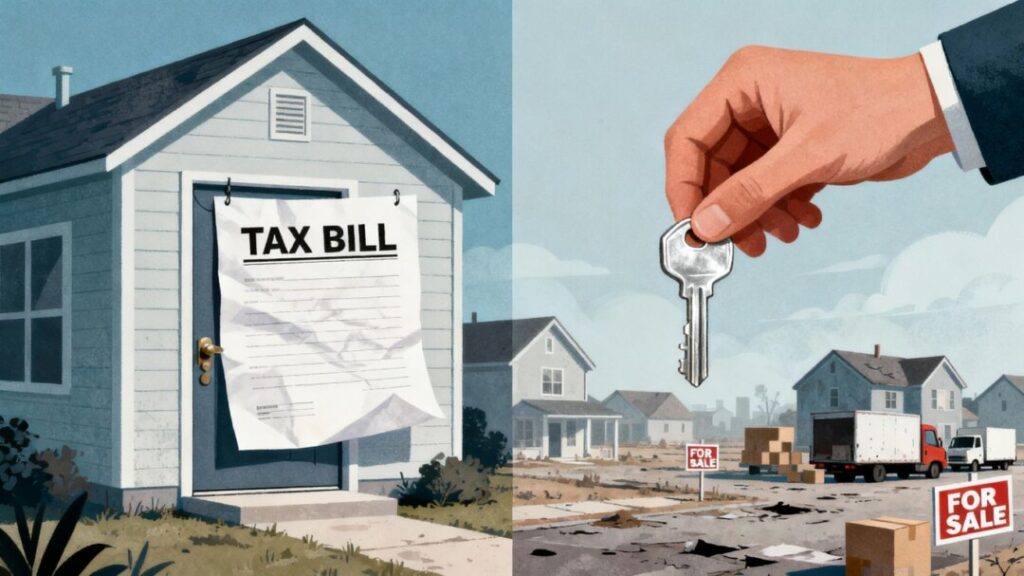Florida lawmakers are actively exploring significant reforms to address the state’s escalating property tax concerns and persistent housing shortages. With a growing population and rising costs, legislators are considering various proposals aimed at providing relief to homeowners and increasing housing affordability across the state. The upcoming legislative session is expected to feature robust debate and potential policy shifts.
Key Takeaways
- State representatives are proposing measures to alleviate property tax burdens on homeowners.
- A significant housing shortfall of 486,000 homes is a major concern.
- Legislators are examining the complexity of the current property tax system, including exemptions and caps.
- Potential solutions include direct financial relief, property tax overhaul, and zoning reforms.
Property Tax Relief Proposals
State Representative Jeff Holcomb has introduced House Bill 71, which proposes sending $1,000 checks to qualifying homesteaded homeowners annually for the next five years. This initiative targets homeowners with taxable property values between $100,000 and $450,000, aiming to ease the financial strain caused by rising property taxes and insurance costs. This is part of a broader effort by House Republicans and the governor to address property tax issues.
Overhauling the Property Tax System
The Florida House has begun a comprehensive review of the state’s complex property tax system, with the possibility of a ballot measure in 2026. A key focus is on seniors who own their homes outright, as they are particularly vulnerable to increasing tax bills. The existing "Save our Homes" cap, which limits annual assessment increases to 3%, creates disparities between long-term residents and new buyers, especially in high-cost areas. Lawmakers are examining how various exemptions and caps impact tax collections for local governments and school districts.
Addressing the Housing Shortage
Florida faces a critical housing deficit, estimated at 486,000 homes, driven by rapid population growth. To combat this, lawmakers are considering reforms to increase housing supply and affordability. One proposed solution involves reducing minimum lot size requirements for new developments. This change would allow for the construction of more starter homes, making them more accessible to young families and first-time buyers. Additionally, there is a push to expand access to accessory dwelling units (ADUs), which can provide more affordable housing options and generate income for existing homeowners.
Impact on Local Governments
Economists and lawmakers are discussing the potential ramifications of property tax reform on local governments, which rely heavily on these revenues for essential services like police and fire departments. The complexity of the current system, including the "truth in millage" (TRIM) requirements and rollback rates, is under scrutiny. Concerns have been raised about how changes, such as the portability of tax benefits like "Save our Homes" to lower-valued counties, can significantly impact the revenue of smaller, more fiscally constrained local governments. The state aims to balance property tax relief with the need for stable funding for public services.
Key Takeaways
- Lawmaker proposes $1,000 checks for homeowners for next 5 years, WPTV.
- Florida House begins work on property tax overhaul, Tallahassee Democrat.
- Florida housing reforms for more homes, Miami Herald.
- Economists discuss possible impacts of eliminating property tax on governments large and small, Florida Politics.


